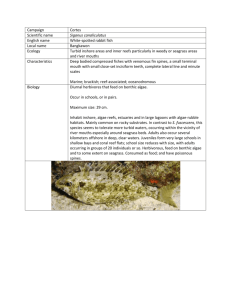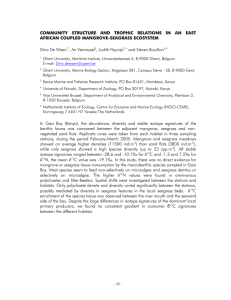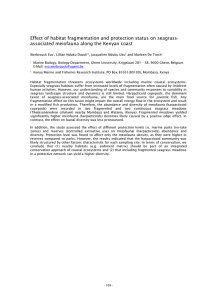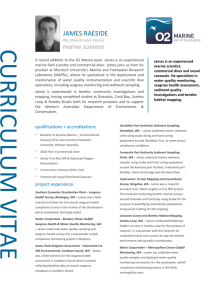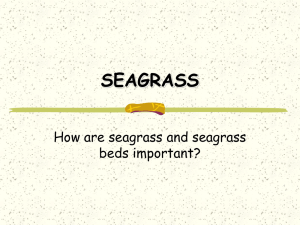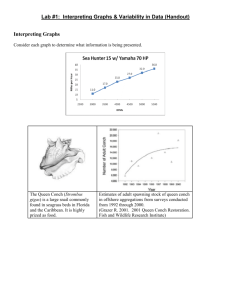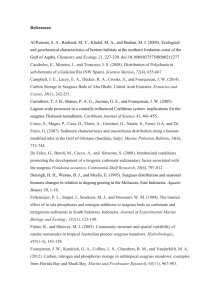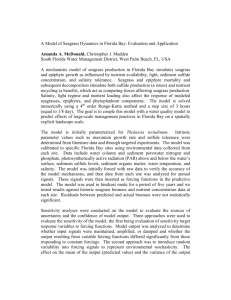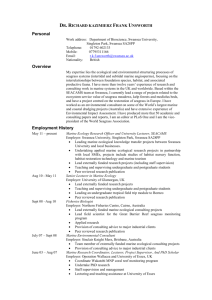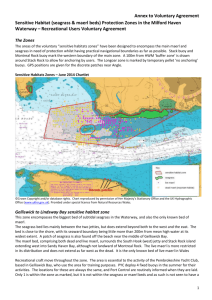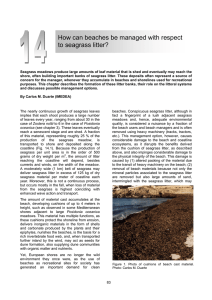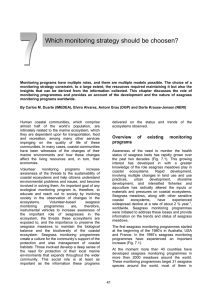An integrated study of the Gladstone marine system
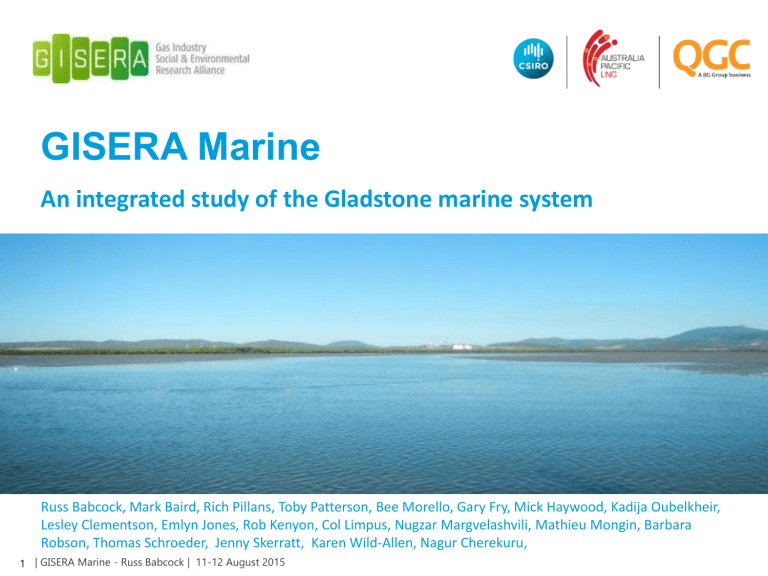
GISERA Marine
An integrated study of the Gladstone marine system
1
Russ Babcock, Mark Baird, Rich Pillans, Toby Patterson, Bee Morello, Gary Fry, Mick Haywood, Kadija Oubelkheir,
Lesley Clementson, Emlyn Jones, Rob Kenyon, Col Limpus, Nugzar Margvelashvili, Mathieu Mongin, Barbara
Robson, Thomas Schroeder, Jenny Skerratt, Karen Wild-Allen, Nagur Cherekuru,
| GISERA Marine - Russ Babcock | 11-12 August 2015
GISERA & Development in Port Curtis
•
• CSG developments are large, but …
Long History of Port
Development, other impacts
• Lessons or insights from
Gladstone are relevant to many other areas of coastal Qld.
2 |
GISERA Marine overall goals
Improve the scientific knowledge base needed to anticipate and mitigate impacts, and to identify opportunities for trade-offs and offsets:
• assist agencies in evaluating and refining environmental trigger levels for water quality parameters and seagrass
• examine options for management of the iconic fauna such as turtles
• increase the level of confidence around environmental decision making processes in Port Curtis (and potentially more widely)
Insights from Gladstone are relevant to many other areas of Coastal QLD
3 |
GISERA Marine Components
1.
2.
3.
Habitat quality – water column properties and seagrass distribution
Modelling
– Hydrodynamic / Biogeochemical model of Port Curtis; predicting water quality and seagrass growth
Turtle behaviour – habitat use and risk modelling
4 |
Water quality and seagrass growth getting the basics right
Measuring water quality
•
•
•
•
•
•
•
Salinity
Temperature
Secchi
TSM
Particulate & detrital absorptions
CDOM
Pigment analysis
7 |
2012
TSM Secchi Inorganic Fraction CDOM
2013
GISERA Marine | Russ Babcock
2012
8 |
Algal pigments
• Biomass of phytoplankton higher in 2012
• Diatoms dominant, green algae also present
• Sites outside the harbour different, dominated by cyanobacteria, picoplankton
2013
GISERA Marine | Russ Babcock
Inherent Optical Properties (IOPs) from model state.
Absorption Scattering Attenuation
Wavelength
Suspended sediment properties: scattering / attenuation observations from an ACS.
Surface reflectance estimates
Reflectance calculations based on field observations match well with remote sensing algorithms
10
Measuring seagrass
Model validation
• Species
• Depth-range
(presence/absence)
Turtle habitat use
• Species
•
•
Cover
Biomass (wwt/dwt)
Seagrass depth-range sampling
877 seagrass stations at 41 seagrass beds
CI1
CI2
CI3
CI4
CI5
CI6
CH2
CH1
PBS1
PBS2
FInew
PBN1 & 5
PBN4
NB1
NB3
FI2
NB4
Broad agreement with TropWater results
Critical light levels for seagrass beds
2
1
0
-1
-2
-3
-4
0 y = -1.8054x + 1.6531
R² = 0.5084
0.5
1 1.5
Secchi depth (m)
2 2.5
13% Available PAR
4.5 Mol PAR m -2 d -1
4 Mol PAR m -2 d -1 corresponds with cut-off point in
GISERA seagrass growth model
High resolution sampling of seagrass distribution
Sampling design Observed Zostera
Thank you
